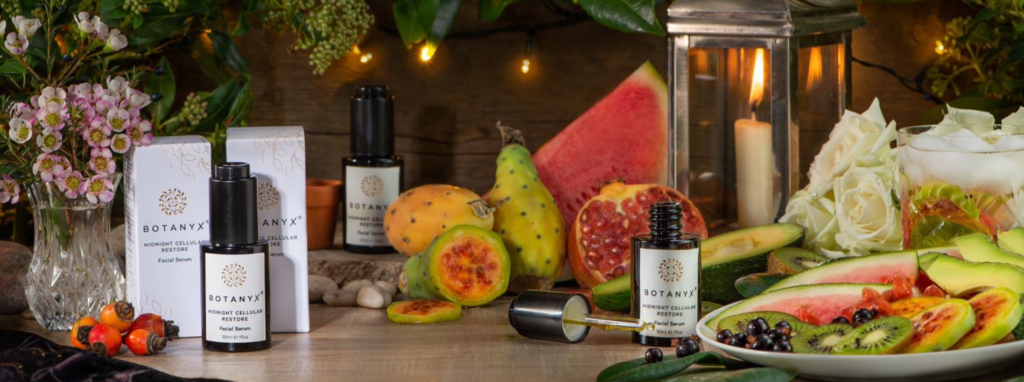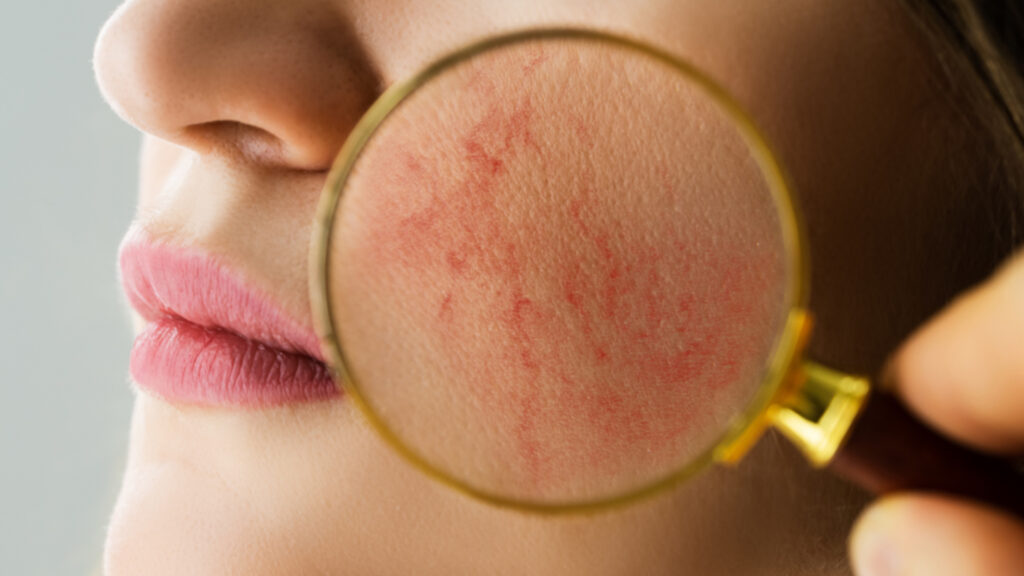Rosacea is a common but poorly understood chronic skin condition that usually effects the face. It causes redness, visible blood vessels and sometimes one can get small red spots like heat rash spots which can be mistaken for acne or a skin allergy.
As rosacea is a chronic skin condition, it requires a multifaceted approach to its management and control. The good news is, it can be kept under control by making lifestyle adjustments.
How do I know if I have rosacea?
It begins with red flushes on the face which come and go, as the condition persists, it can further develop into the following:
- Persistent facial redness across nose, cheeks, forehead and chin. This can also spread to the neck and the chest.
- Visible blood vessels and resemble spider veins.
- Acne resembling small, tiny red bumps.
- Sometimes, it can cause the eyes to be bloodshot and irritation.
- Over time, the skin can thicken, especially over the nose, resulting in a condition called rhinophyma.
A few more symptoms that are associated with rosacea are:
- Sensitive skin the feels like burning, itching, stinging and is hot to touch.
- Dry, rough feeling skin.
- Raised plaques on the skin.
- Swelling of the face.

How do I manage life with rosacea?
Rosacea can be a long and chronic condition and may impact one’s self confidence, making you feel low in self-esteem and other psychological issues. It is so important to follow proper treatment and avoid the triggers that worsen the condition, as well as adjusting your lifestyle.
Rosacea is quite common, so you don’t have to face it alone. It is estimated that at least 1 in 20 people in the UK are affected by this condition.
Symptoms can first occur as early as the 20s, but usually is more prevalent in the 30s – 60s. It is more common to find in women but men face it more severely.
Keep an eye out on our blog for tips on how I managed my rosacea.
Why might I have rosacea?
Unfortunately, there are no exact causes of rosacea, but several factors have been identified as a possible cause.
- Family history: there can be a genetic predisposition.
- Environmental factors: extreme sunlight, extreme temperature, wind, humidity and dry indoor heat.
- Lifestyle factors: stress is a big factor that can cause rosacea.
- Dietary factors: alcohol consumption, spicy foods and hot drinks.
- Compromised immune system: may cause the inflammation associated with rosacea.
- Other: possible infection with Demodex Mites.
Rosacea is an issue I faced for over ten years after the birth of my daughter. I later identified my trigger to be stress. After trying the conventional treatments offered by my medical practitioner and seeing no results, I rejected the last final solution of a long-term course of antibiotics.
Due to this, I began to make my own products from natural ingredients and adjusted my lifestyle to reduce stress and adopt a holistic lifestyle. This cleared my rosacea within months. Keep your eye out for our next blog for tips on how I treated my rosacea.

Yasmin
Did you enjoy this article? Subscribe to our newsletter at the bottom of the page and get your weekly dose of inspiring reads.


